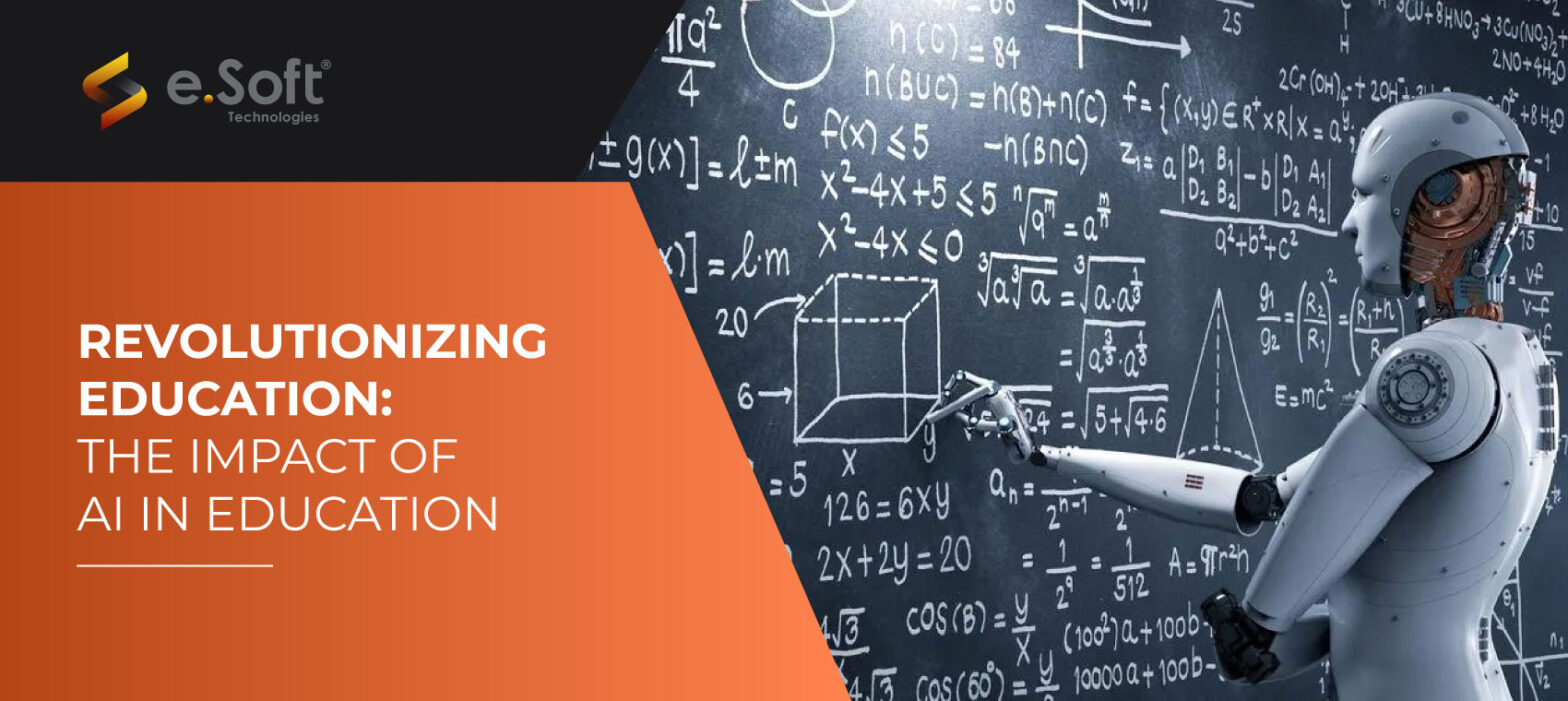
Revolutionizing Education: The Impact of AI in Education
Introduction
In today's rapidly evolving world, technology continues to play a pivotal role in shaping our daily
lives. One of the most promising technological advancements of our time is Artificial Intelligence (AI). As AI grows in prominence, it has begun to transform various aspects of society, and education is no exception. The integration of AI in education has the potential to revolutionize the way we learn and teach, making education more personalized, efficient, and inclusive.
Understanding AI in Education
Before we delve into the profound impact of AI in education, let's first understand what AI means in
this context. In essence, AI in education refers to the application of artificial intelligence, including machine learning and natural language processing, to create systems and tools that enhance the learning experience. AI is not about replacing teachers but rather empowering them and students with tools and insights that were previously unimaginable.
Applications of AI in Education
1. Personalized Learning: AI has the potential to tailor educational content to the unique
needs and pace of individual learners. Adaptive learning platforms use algorithms to identify a student's strengths and weaknesses, providing personalized lessons and exercises to help them progress.
2. Intelligent Tutoring Systems: These systems offer real-time feedback and guidance to students, acting as virtual tutors who are available 24/7. They can answer questions, provide explanations, and help students grasp complex concepts.
3. Grading and Assessment Automation: AI-driven software can automate the grading
process, saving teachers valuable time and ensuring consistent and objective grading.
Additionally, AI can analyze student performance data to help educators identify areas that
require attention.
4. Virtual and Augmented Reality in Education: Immersive technologies powered by AI can
create engaging learning experiences. Virtual and augmented reality can transport students to historical events, distant places, or even inside the human body, making learning more interactive and memorable.
5. AI-Powered Chatbots for Student Support: AI-driven chatbots can offer instant support to students with questions, guidance, and reminders. They are available around the clock, improving student satisfaction and retention.
6. Early Intervention and Student Success Prediction: AI can analyze vast amounts of data to identify students who might be at risk of falling behind or dropping out. This early intervention can help institutions provide additional support to struggling students.
Advantages of AI in Education
The integration of AI into education offers a multitude of advantages, both for students and teachers:
1. Improved Student Engagement: Personalized learning and interactive technologies make
learning more engaging and enjoyable. When students are actively involved in the learning process, they tend to retain information better.
2. Enhanced Learning Outcomes: AI can adapt content and teaching methods to suit individual learning styles, maximizing the potential for each student. This tailored approach results in improved learning outcomes.
3. Teacher Productivity and Support: AI can handle time-consuming administrative tasks like grading, allowing teachers to focus on what they do best—teaching. Furthermore, AI tools can provide teachers with data-driven insights to help them refine their teaching methods.
4. Accessibility and Inclusivity: AI-powered tools can make education more accessible to
people with disabilities. For instance, text-to-speech and speech-to-text technology can aid students with visual or auditory impairments.
5. Data-Driven Decision-Making in Education Institutions: Schools and universities can use AI to analyze data on student performance, attendance, and more, helping them make informed decisions about curriculum and resource allocation.
Real-World Examples
To understand the practical impact of AI in education, let's explore some real-world examples of
schools and institutions that have successfully integrated AI into their teaching methods:
1. Knewton: Knewton, an adaptive learning platform, uses AI to personalize educational
content for students. By analyzing student performance and preferences, it tailors lessons to suit individual needs, resulting in significant improvements in student outcomes.
2. Duolingo: The popular language learning app, Duolingo, uses AI to adapt lessons based on user progress. This personalized approach has helped millions of users worldwide learn new languages efficiently.
3. Georgia State University: This university has used predictive analytics and AI to increase student success rates. By identifying students at risk of failing or dropping out and providing timely interventions, they've significantly improved graduation rates.
Conclusion
AI in education is a game-changer, poised to transform the way we teach and learn. Its potential to
personalize education, enhance learning outcomes, and support educators is remarkable. However, we must also tread carefully, addressing the challenges of privacy, ethics, equity, and the impact on the teacher-student relationship.
As we look to the future, AI's role in education will only continue to grow, offering new opportunities and challenges. To harness its full potential, we need to approach AI in education with a clear vision,
responsible practices, and a commitment to creating an educational system that serves all students, regardless of their individual needs and abilities. In doing so, we can truly revolutionize education and prepare students for a future where adaptability and lifelong learning are essential skills.


 +91-22-49727454
+91-22-49727454